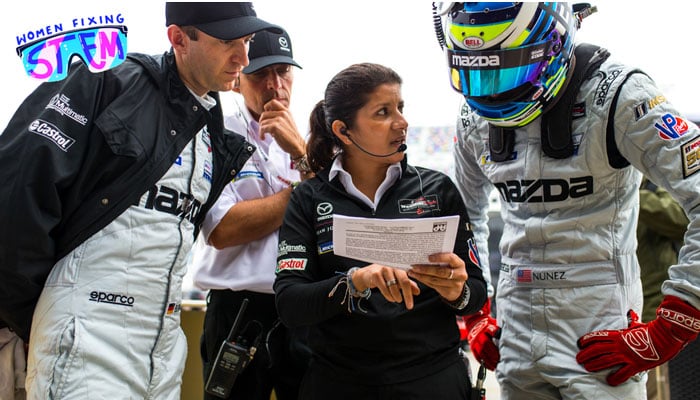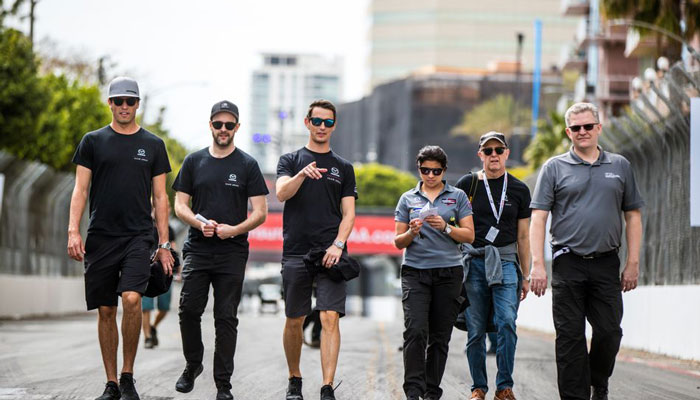Groundbreaking female race engineer lights up fast lane for women
Gade, 43, who currently works for Canadian engineering company Multimatic
March 05, 2020

PARIS: Leena Gade broke the mould in motor racing in 2011 when she became the first female race engineer to lead a team to victory at the world-renowned 24 Hours of Le Mans. And just to show it was not a fluke, she did it again with the same Audi team at the sport´s premier endurance event in 2012 and 2014.
The Briton of Indian origin said she and her younger sister Teena -- also a race engineer -- discovered the world of Formula One in the late 1980s. "That sparked an interest that maybe we could do engineering in motorsport. Ever since then that´s all we ever wanted to do," she told AFP.
Gade, 43, who currently works for Canadian engineering company Multimatic, was ironically named FIA World Endurance Championship ´Man of the Year´ in 2012 and a year later named an ambassador for the FIA Commission for Women in Motorsport.
Also read: Pakistani female contesting to represent 31,000 students in London

Q: What does it mean to you to have been the first female race engineer to win the 24 Hours of Le Mans?
A: "To this day, I still don´t think of it as some kind of amazing phenomenal achievement that has changed anybody´s perception of the industry. But I realise that for a lot of people, especially young women and young children, it is important. It´s coming on to 10 years now since that win and there hasn´t been another woman who has taken a major racing team to a major win. That says a lot about where we still are. We need more at this level."
Q: What pushed you into a career in what is largely a male-dominated environment?
A: "It´s really important that people realise it´s not down to the individual to make that change. It starts much earlier than that. It´s teachers, friends, parents, family supporting you and saying it´s normal. It´s not one person that went off and did that one extraordinary thing. What got them to that point is the structure around them."
Q: During your career, have you suffered from or noticed any discrimination?
A: I´ve been in motorsports for 14 years and I have never noticed any kind of discrimination. I was always encouraged by most of the guys that I worked with because if I wasn´t doing my job properly, they couldn´t do their job properly and the team wouldn´t achieve."
Q: What about the drivers?
A: "I have heard stories of female drivers who felt that they did not receive the same support as men, especially since their teams did not adapt the ergonomics of the car to their body type. It surprises me because we do it for men so why should that become an issue? I am not saying that happens everywhere but it has happened and I think there is still some discrimination there."











